
Discover Japanese Culture in Portland, Oregon
Taste sake, relax in a plant-filled spa, and try on trendy street fashion—no passport required.
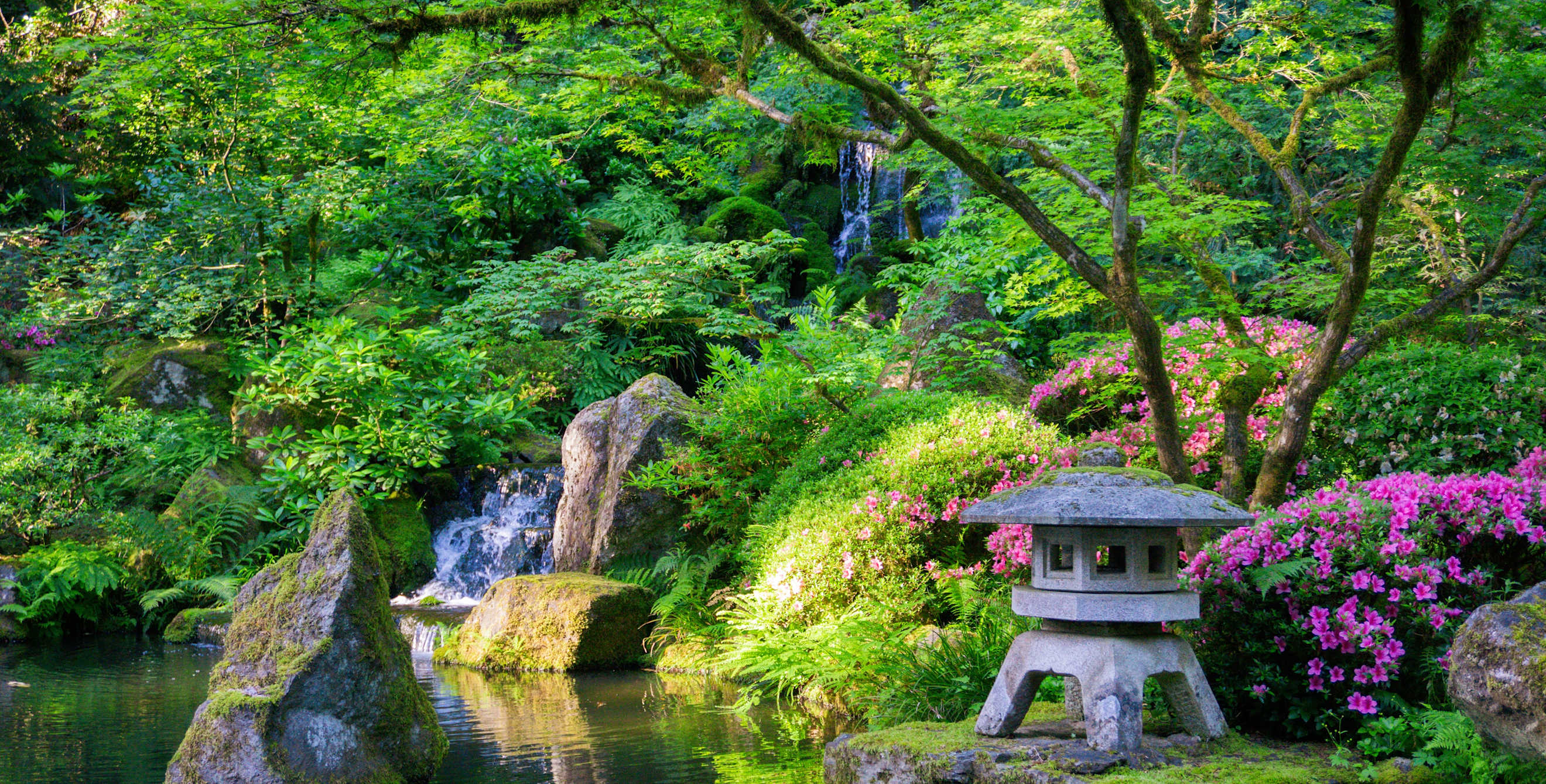
Living in her native Japan, Akiko Nakamura knew a bit about Portland, Oregon, because she worked for Nike, whose headquarters are just outside the city. But her girlfriends weren’t interested in the city until 2014, when Elle magazine’s Japanese edition named it the best U.S. city to visit. “I heard it was going to be the next Brooklyn,” says Nakamura. She moved to Portland with her husband in 2021.
Nakamura is part of a generation of Japanese travelers who started dreaming of Portland’s woodsy environs in the early to mid-2000s, thanks to features in a slew of magazines, including Japanese publications Papersky, Popeye, and Brutus. Meanwhile, Portland brands Stumptown Coffee and Blue Star Donuts debuted in Tokyo. The cultural exchange was turbocharged when Japanese design icon Teruo Kurosaki created the indie guidebook True Portland. Partially underwritten by Portland’s tourism office, the book invited visitors to explore the best record shops, microbrews, parks, and cafés in “Potorando,” the Japanese name for the city.
Today, thanks to entrepreneurial Japanese expats and Americans devoted to Japanese culture, the Rose City is rich with authentic Japanese design and cuisine. For anyone seeking a taste of Japan sans passport, Portland is the place to go.
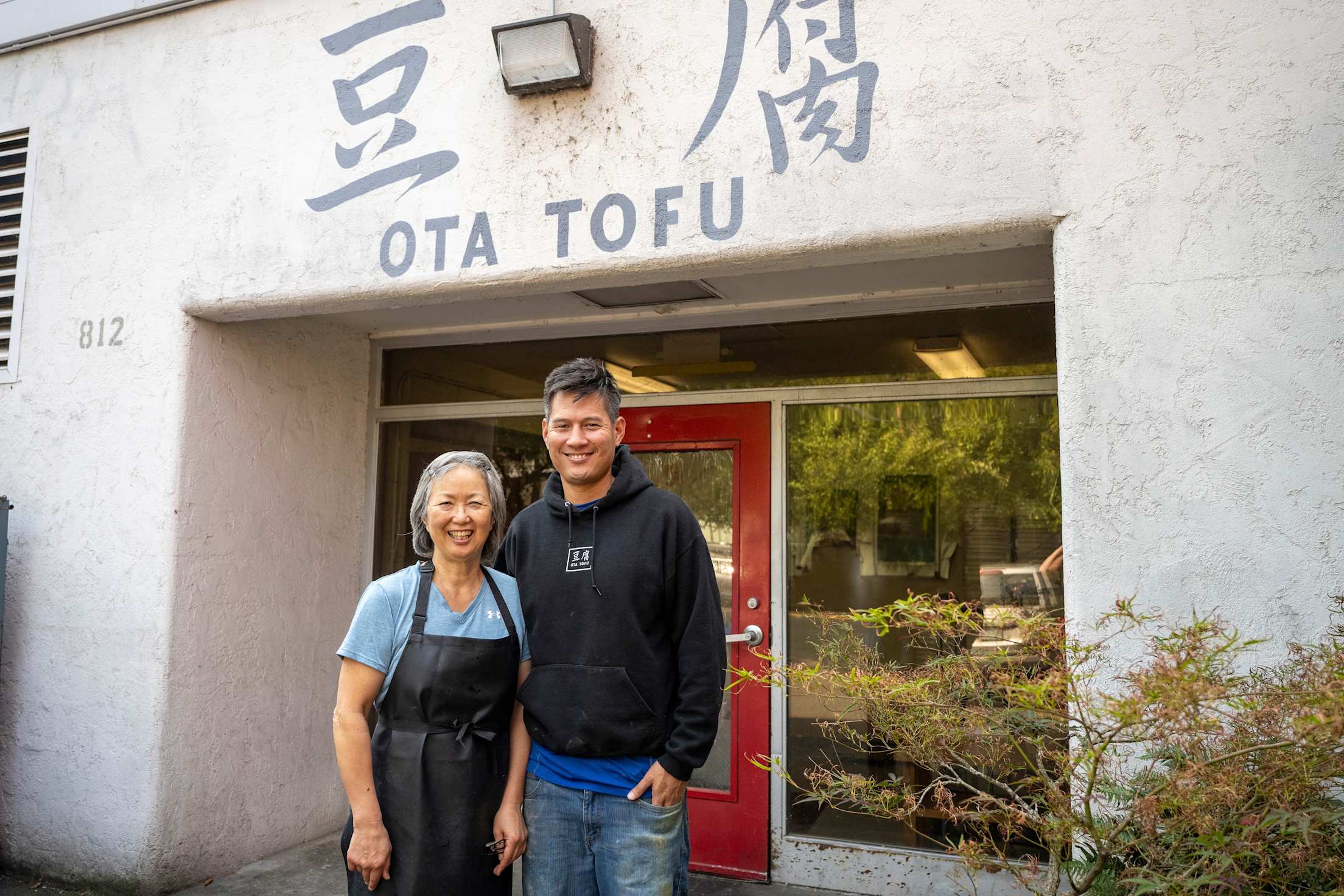
Know
Portland’s Japanese history dates to the 1890s, when immigrants arrived to work in logging and farming, and started a community called Nihonmachi. That original enclave in Northwest Portland withered when Japanese Americans were incarcerated during World War Il, eventually becoming New Chinatown, says Hanako Wakatsuki-Chong, executive director of the Japanese American Museum of Oregon.
However, America’s oldest tofu maker, Ota Tofu, which started there in 1911, is still going strong. In 1959, Portland and northern Japan’s Sapporo became sister cities, bonding over their shared beer culture, while Portland leaders commissioned the Portland Japanese Garden in 1961 to promote cultural exchange and healing. Intel opened in the mid-'70s in nearby Hillsboro; a decade later, Japanese tech companies followed, furthering the growth of the so-called Silicon Forest.
The ongoing love affair makes Portland a magnet for Japanese people who want to find their place in a city known for local food and quirky indie culture.
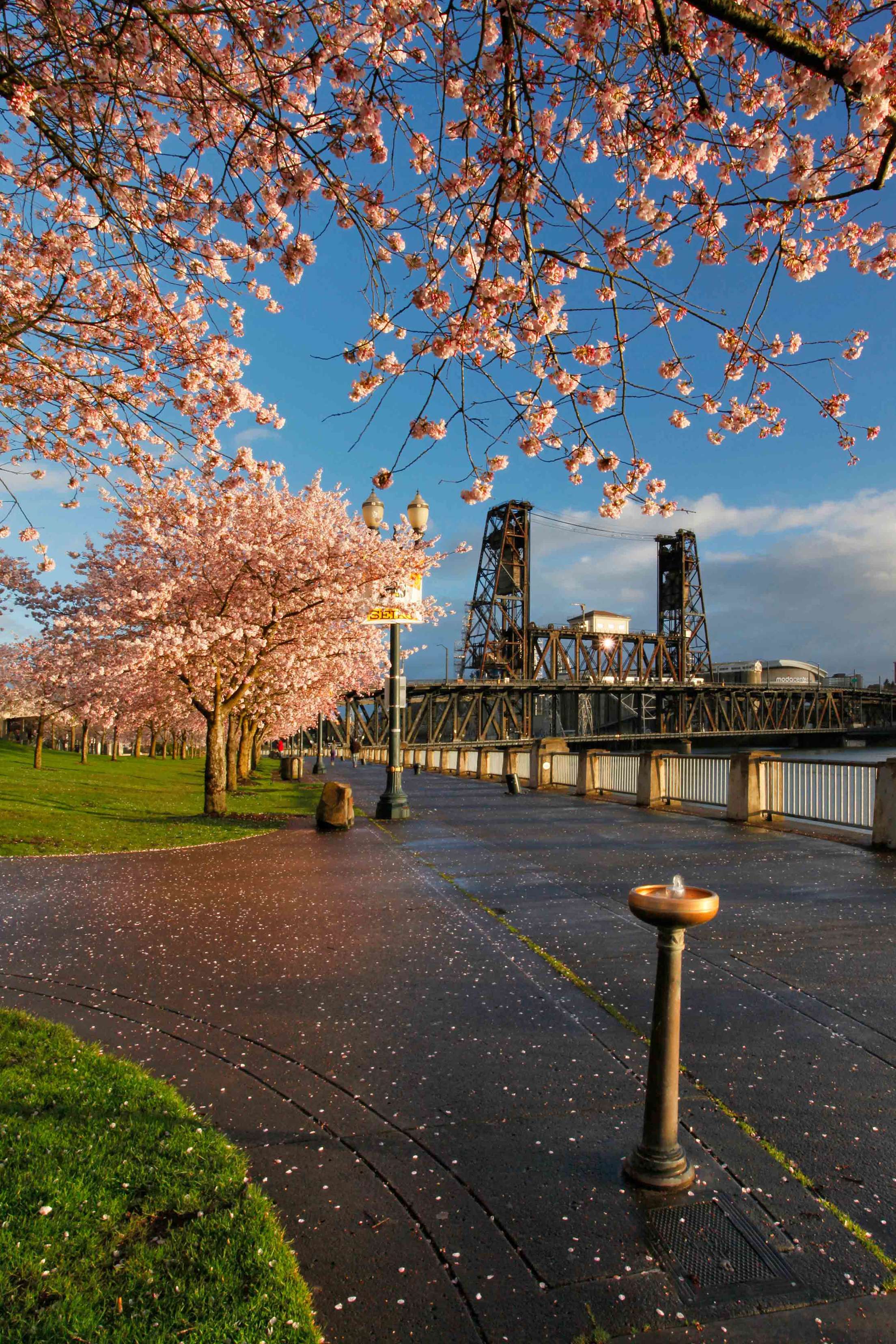
Go
Portland’s best attractions immerse visitors in nature and share cultural stories. Don’t miss the Portland Japanese Garden in Washington Park, where eight styles of gardens unfold over 12.5 acres, including a bonsai terrace and a strolling pond garden with a dramatic waterfall. The East Veranda offers a perfect view of Mount Hood; it’s like a mini Mount Fuji. Even DIY tourists will appreciate the docent-led tour (included with $22.50 adult admission) that explains the symbolism hidden in the garden’s gate, ponds, and trees.
Next, visit the Japanese American Museum of Oregon for a glimpse into the history and resilience of the region’s Japanese American community. If it’s March or April, head to the Japanese American Historical Plaza to peep 100 cherry trees blooming along the Willamette River.
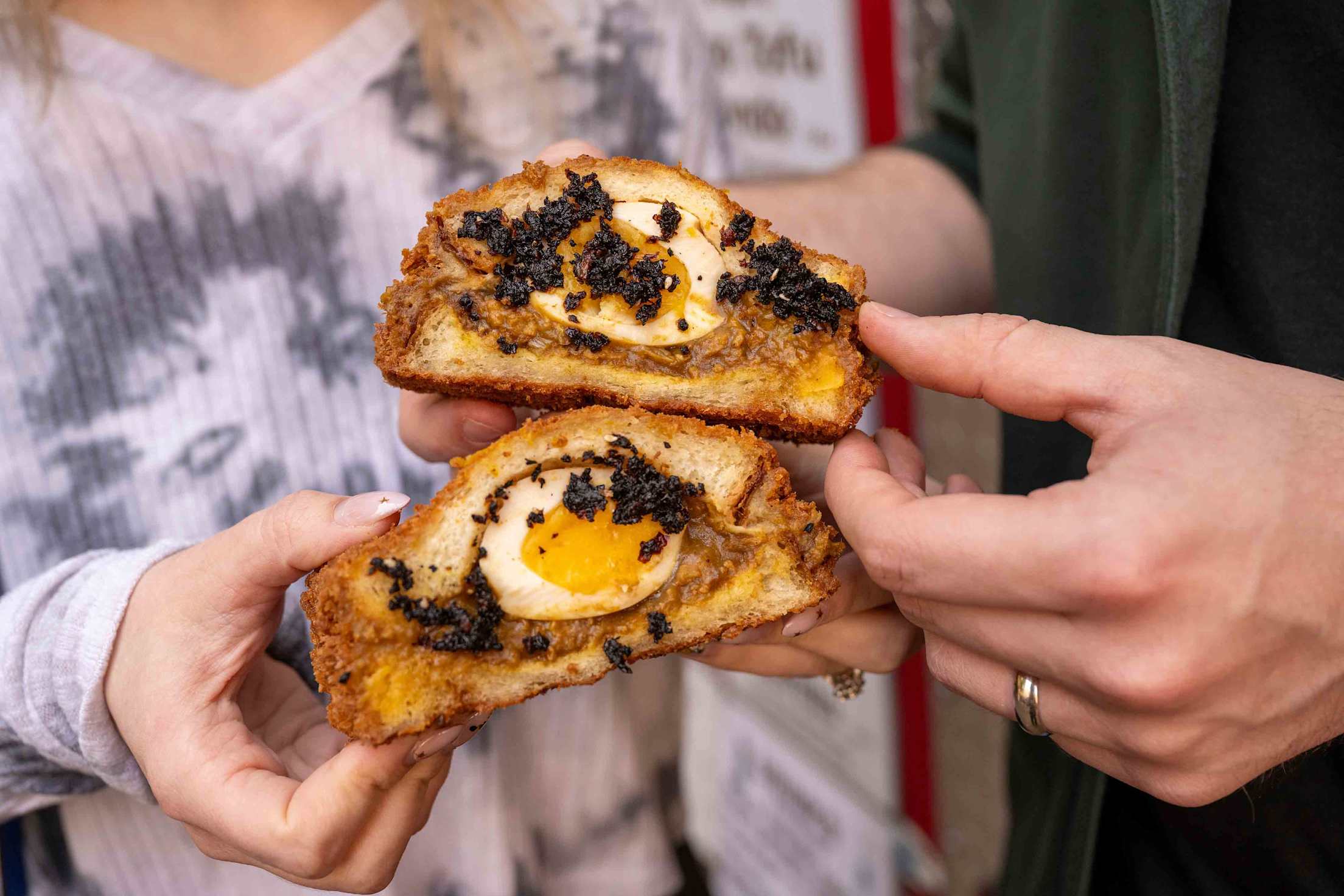
Eat
Portland’s best Japanese drinks and cuisine blend local produce, tradition, and modern forms. Woman-owned Behind the Museum Café offers pristine sencha along with modern strawberry matcha, hojicha soft serve, and tasty gluten-free onigiri in a gallery-like space. The aroma of freshly baked shokupan bread greets you at Tanaka, a Tokyo bakery serving crispy chicken katsu sandwiches and sweets like ube donuts.
Locals line up at the Tokyo Sando cart for elevated convenience store sandwiches with fillings like miso pork katsu with black garlic. GeekEasy Anime Cafe is where kids at heart can enjoy steak bowls and chrysanthemum tea elixirs in a playful space that’s an homage to anime and kawaii. Not far away, Soen Portland specializes in stunningly artistic kakigori shaved ice desserts with seasonal flavors like strawberry, melon, and apple. Try them while you can: shaved ice is available only on certain days (in 2025, Monday through Thursday) from spring to the middle of fall.
If you’re sake curious, let Nina Murphy of Sunflower Sake lead you through a flight of modern brews that can taste like delicate pear or bold and toasty. Her 200-plus rare selections shine with nibbles like salted cucumbers and potato salad with local ham. The February Fuyu Fest is becoming the premier Pacific Northwest event for connecting international sake lovers.
Takibi means “bonfire,” so oak-seared skirt steak and grilled squid are standouts at this earthy izakaya inside Japanese luxury outdoor store Snow Peak. The cocktail program was founded by NYC bar star Jim Meehan, so it’s legit. Terra Mae marries Portuguese and Japanese flavors with unctuous spiced wagyu beef cheek pot roast with purple Okinawa sweet potatoes, bok choy braised in caramel fish sauce, and brown sugar butter mochi cake with sesame.
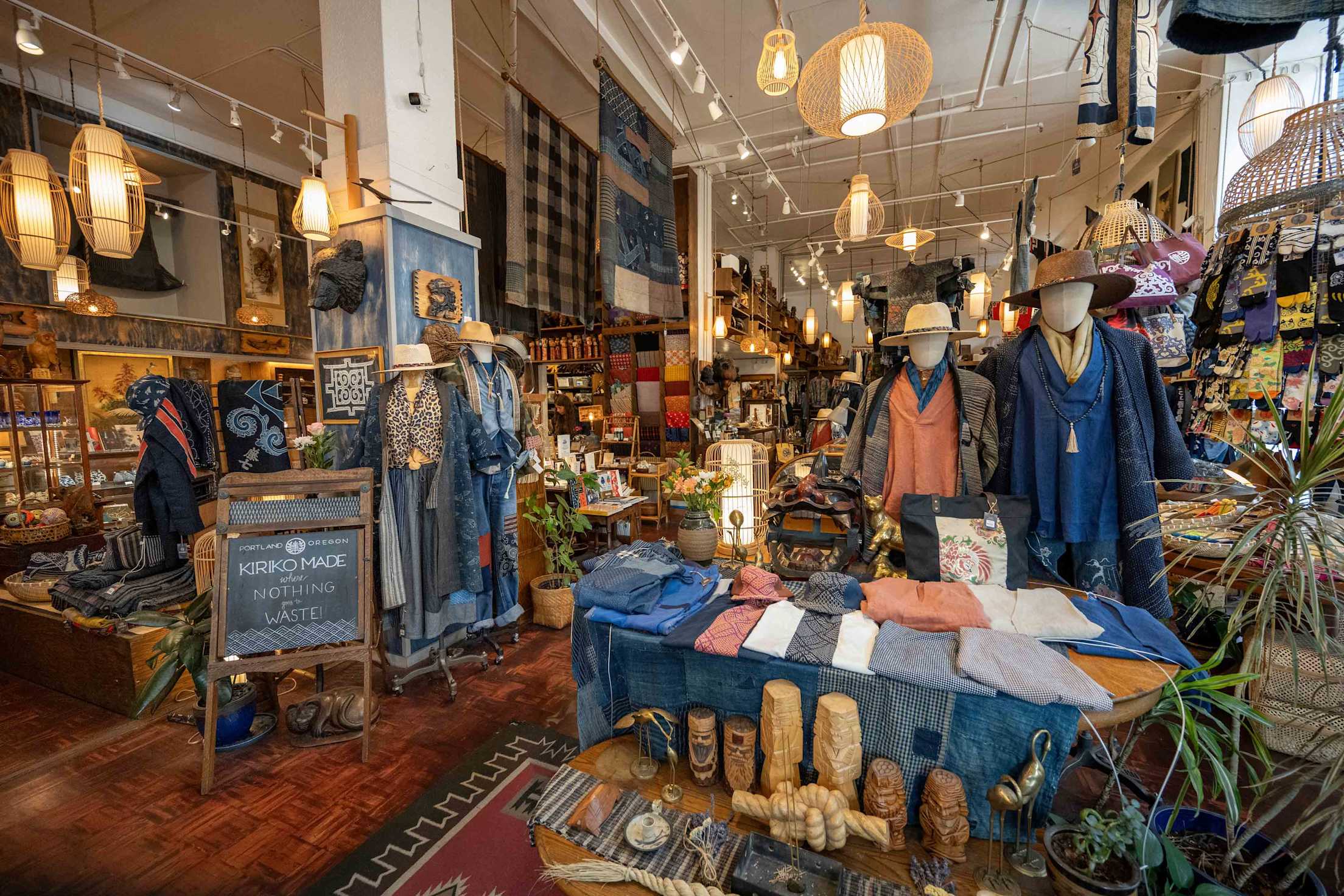
Shop
Japanese-run shops make it easy to find Japanese wares, including collectibles, magazines, high fashion, and home goods. Max out your street style with Nakamuraya’s carefully curated pieces by Wacko Maria and Flagstuff, plus sleek Zeptepi market bags. Eclectic Kiriko Made features vintage denim, reworked kimonos, and Native American turquoise alongside matcha by Mizuba Tea Co., a local brand that sources much of its matcha from Uji, Japan’s green tea capital. Order a rose latte from Muji’s robot barista Jarvis, then shop the department store for housewares, fragrances and neutral clothing staples. Banish boring socks at Live Your Colour, a gift shop with multicolored tabi toe socks decorated with corgis, waves, or cherry blossoms.
Kinokuniya bookstore is the go-to for the latest Japanese magazines and books, novelty magnets, and Sonny Angel blind box dolls. And it wasn’t surprising to hear a young visitor to Stumptown Otaku exclaim, “This is so cool!” An 8-foot Pokémon character at the door guards a wonderland of anime toy collectibles and stickers. If you’re feeling lucky, buy an Ichiban Kuji ticket, then peel it to reveal your prize.
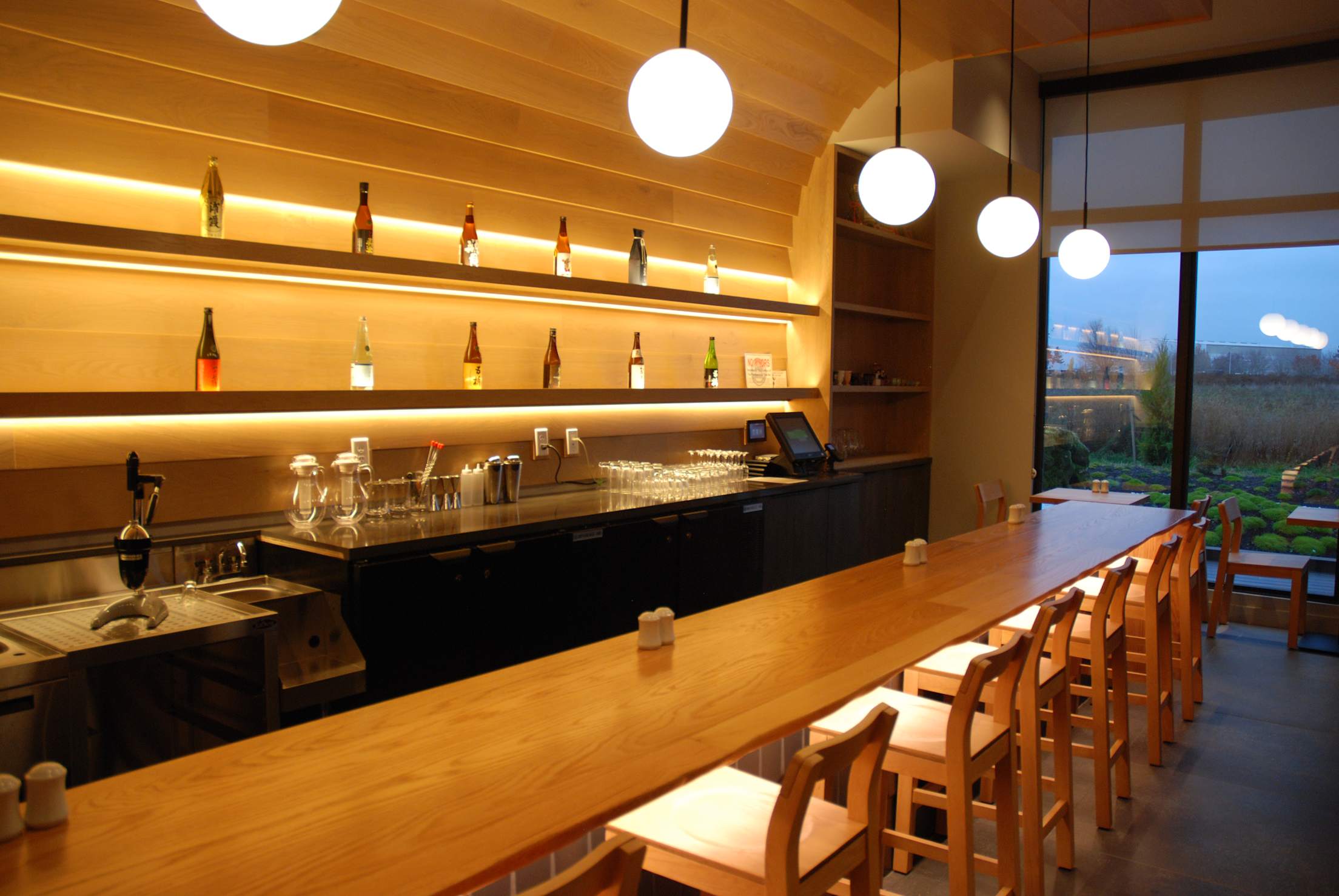
Stay
A pair of hotels offers the experience of Japanese hot springs culture. Soothing men’s and women’s onsen baths and an in-house sake bar await at Cedartree, a discreet 120-room Japanese-style hotel (rooms start at around $130) that caters to business and leisure guests in Hillsboro. Minimalist rooms feature washi lights, soaking tubs, and Japanese washlets; three larger suites have separate bedrooms and kitchenettes.
For a more immersive aquatic experience, head to Cascada, a new LEED Platinum-certified hotel in the Alberta Arts District with 100 rooms and a Thermal Springs spa. Airy smart rooms (studios start at $299) feature touch-button controls for lights and curtains, as well as kitchens with induction cooktops. Chill with a book in the tropical plant-filled pool Conservatory by day; then stick around for the social vibes when the lights go down. Meanwhile, the circuit of warm and cold pools, steam and sauna in the moodily lit Sanctuary will leave you feeling refreshed. A three-hour spa pass is $50 for hotel guests; others pay $100.
Discover Members-only discounts on car rentals, hotels, and more.